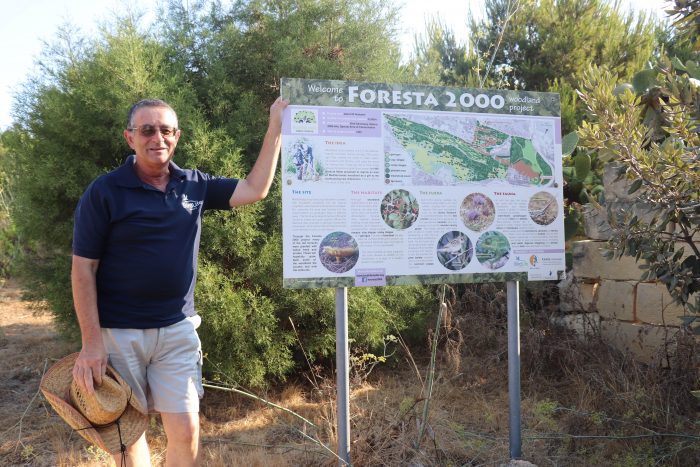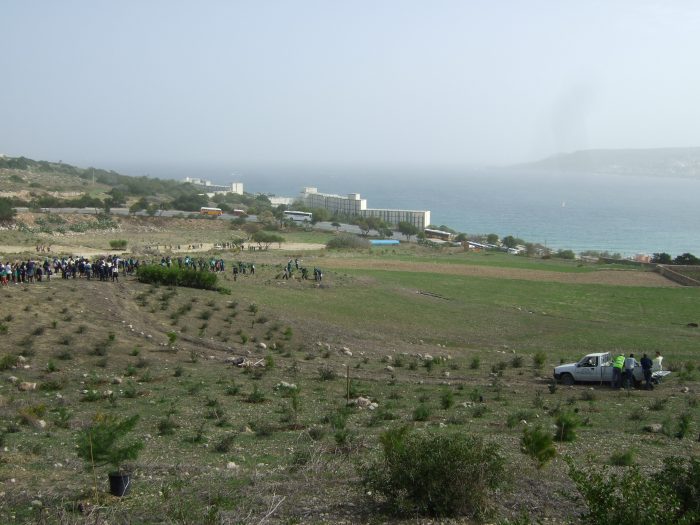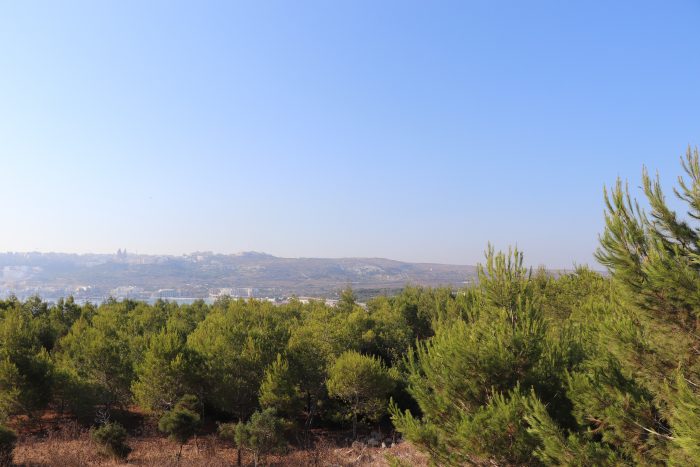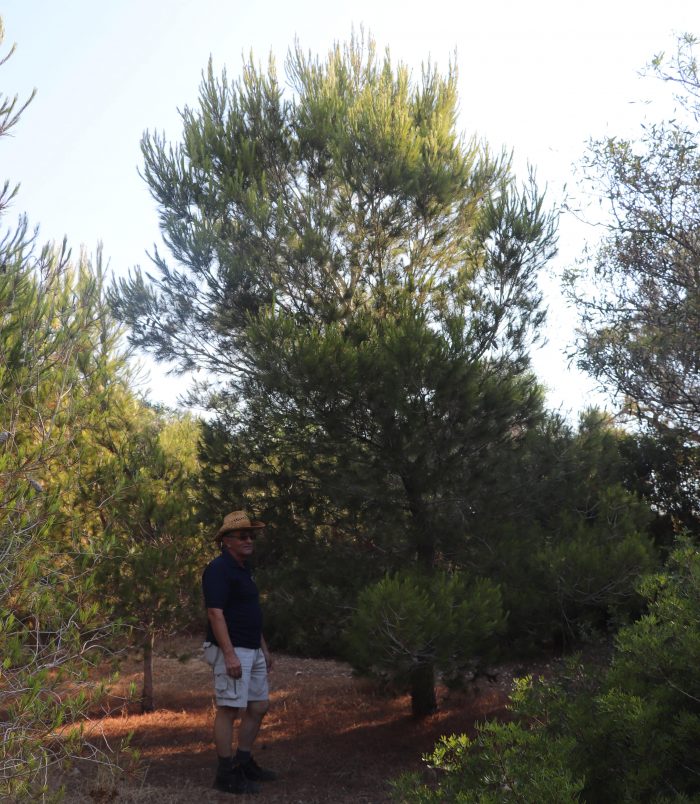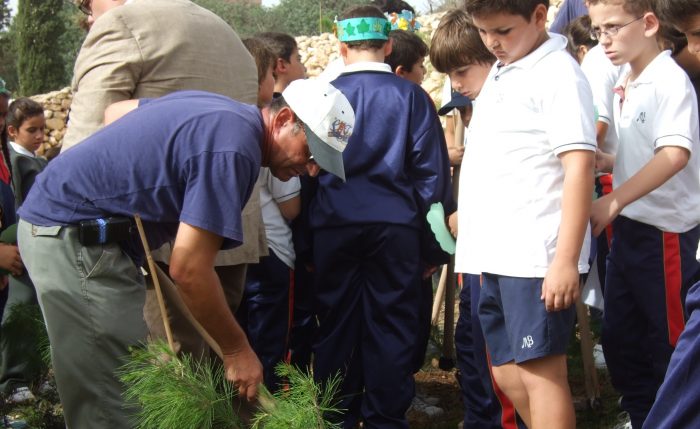The vital importance of trees for all who breathe O2 is well known all over the world. Besides oxygen, we are indebted to the trees in many different ways. A tree provides shade in summer, provides fruit and a home for birds, animals and insects, and also provides a space to connect with nature and recharge – which is also essential for our mental health. On our dry and rocky islands, all green spaces have even bigger importance.
Today, on World Ranger Day, we decided to share with you an interview with Ray Vella, a ranger at our Foresta 2000 Nature Reserve who dedicates his time to taking care of our natural resources for which he has a special love. Ray will be retiring this autumn following 15 years of service with BirdLife Malta.
Q: What were your dreams about the profession during your childhood? Did you ever think that you would be a nature reserve ranger? How long have you been in the job?
A: When I was younger, I always had this dream or maybe even a premonition that one day a job like this would come up. Of course, I had never thought it would be in Malta! Malta, a country with such a hot dry climate and with limited space was not on my dream list to be a ranger. In fact, I had thought about going for a ranger course in Canada after I left the military. But when the application came out 15 years ago, I immediately applied and after two interviews I got the job I am in today. What a great job to land!
Q: What are your regular daily routines as a ranger? Can you describe a typical working day for us?
A: When I first started, the priority was to start the project. This entailed digging, and a lot of digging! As the earth in Sector 1 of Foresta 2000 is made of heavy clay, the ideal time was to dig in summer with the clay being dry and easy to dig. In the heat, it was not easy but having the holes ready was a priority as I desperately wanted to start planting in autumn of 2004. The idea was to start on Sector 1, spend two years and eventually start Sector 2 and so forth until I reach Sector 5. This was over a ten-year period. With the first sector ready, there was the irrigation to do in summer after the winter planting. Of course, I will always remember the four to five months of cutting grass also to make sure the shrubs and trees were not choked by vegetation! Irrigation was done from an underground pipeline connected to the Red Tower. This meant dragging two long pipes up and down the hillsides to irrigate each and every plant by hand. Seeing the 92% success rate was a great satisfaction. With time after the planting, keeping the area clean was another top priority. Maintenance of the area remains a top priority.
Q: Your work is seasonal. Can you tell us more about how it differs from season to season? And what is your favourite season?
A: Workdays are not all the same throughout the year. In winter it is much less stressful as planting and working in our winters is ideal. Even grass cutting which has to be done is easy to do with the grass turning to mulch. In summer it sort of gets cut and needs to be collected as it still constitutes a fire hazard. Also, during those months, I am always ready for the eventuality of fires happening. In the first years, this was a frequent problem and the fires were almost always intentional. The first years were very tough and on more than one occasion I had to come down to help put out fires. In winter also cleanups are done more frequently as people use the area more and of course they leave more garbage behind. Campers can also be a problem in winter months, as the area – as in all of Mellieħa – is a camping-free area and camping can only be done in designated areas. It is not always pleasant to tell people to leave the area. The same goes for illegal hunting in the area, but after a few court cases the problem has practically died out. Winter, of course, is the best season! Having so much greenery, plant species and less stress due to fires make the daily routine a lot easier.
Q: What qualities, in your opinion, should a ranger have?
A: Patience, and a lot of it. Like I always said, growing a forest is not instant. There are no magic mixtures, you don’t just add water and watch it grow! It takes many years for a forest to mature, and the results will only be evident in another 10 to 20 years as the trees mature. Sometimes it is not just nature which works against you. There were the first years with abundant rainfall, with some years so plentiful that planting was difficult to do. Then there were the three years of drought which killed off a lot of trees in the sectors where soil is much shallower. Of course, there were also frequent vandalism attacks against the project and myself. There were days when I thought about leaving, but seeing the trees and shrubs growing meant a lot to me, and giving in would have been tantamount to surrendering my ideals. Apart from all this, the trust shown in me keeps me going. I will always remember a phone call I received after one of the many vandal attacks from a young child who told me to keep going and who thanked me for doing such a great thing by planting trees so he would be able to enjoy them when he grew up. These are the things in life which may be small but mean a lot.
Q: If I’m a child and want to become a ranger, what do you recommend to me to prepare for this? Are there any particular studies I should undertake?
A: Nowadays, fortunately, the environment has changed a lot. Today one can find a long list of studies in many fields related to forestry, environment and plant well-being. There is so much one can study in fields like environmental engineering, plant welfare, landscaping and so forth. If you really want to do something like this, there are so many courses out there for you….even ranger courses online! Browse through the MCAST or University of Malta courses, and even further institutions!
Q: As a ranger, what are your views about the current situation in Malta in regard to the protection of nature resources?
A: The situation has improved, but there are a lot more things which need to be done. Today many areas which are supposedly Outside Development Zones (ODZ) have been targeted for development. There are certain architects who excel at this, getting a permit is an easy task for them finding loopholes. Sometimes the Planning Authority issues permits I would say haphazardly. Many times I have found digging works even at Foresta 2000 ongoing with no permission, let alone a permit. Although illegal hunting in the area has decreased a lot, the lack of enforcement or presence of the ALE is worrying and court cases on hunting seem to have fallen to a record low. Littering, which was on the decline, seems to have picked up once again. Even with a more environmentally-correct population, there seems to be a more populist attitude towards nature. It seems that making money is more important than enjoying nature or guarding our very rich biodiverse countryside. Yet we must never let our guard down.
Thank you, Ray, for this interview and for making such a significant impact to Malta’s nature! Now enjoy your retirement!
Foresta 2000 was designed as a holistic ecosystem that supports its own sustainability. And now we can say with certainty that it became a home for a variety of species. Take a look at some of the photos taken by Ray Vella in this nature reserve.
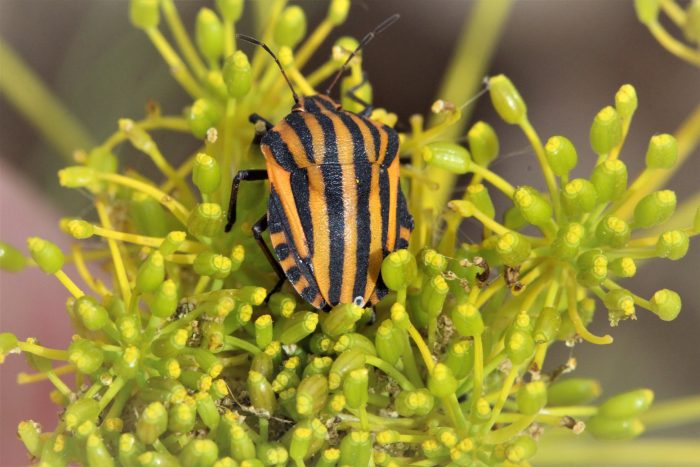
Striped Shield Bug 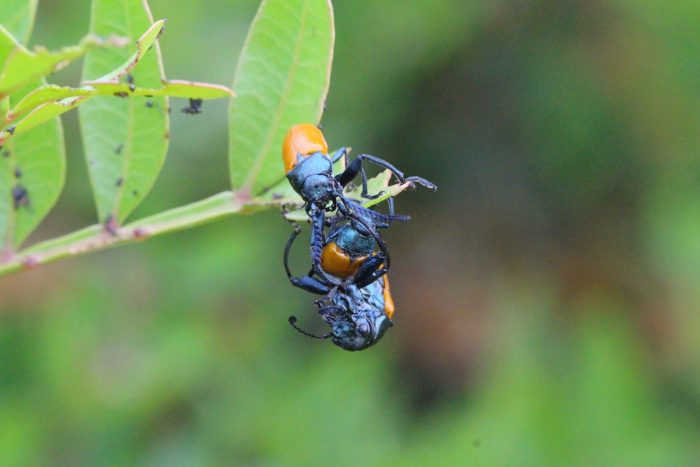
Red Leaf Beetles 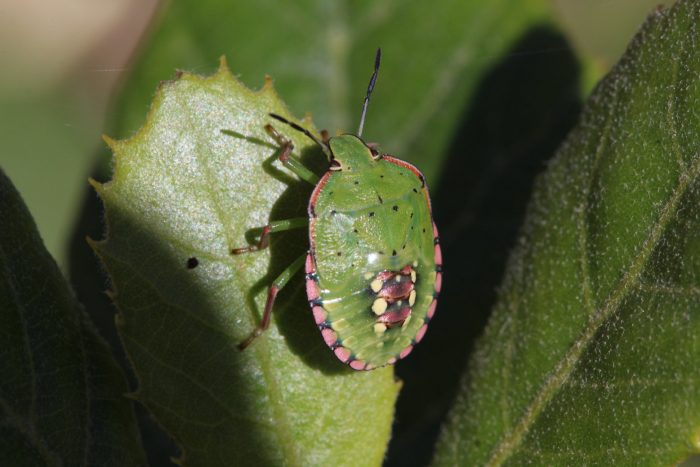
Green Vegetable Bug 
A Crab Spider on a Crown Daisy 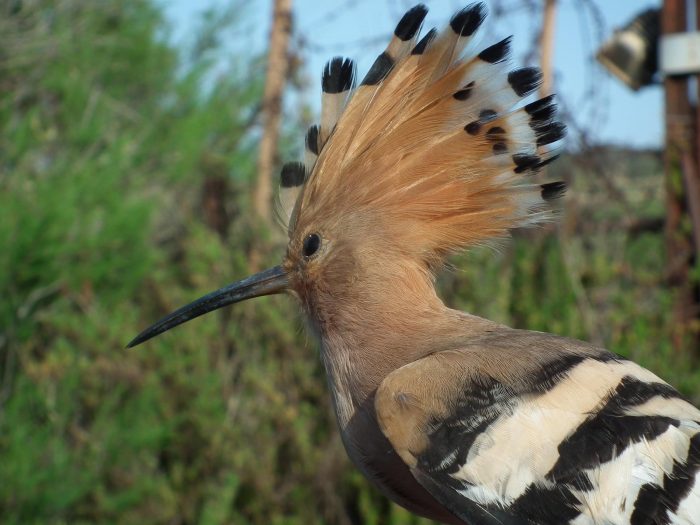
Hoopoe 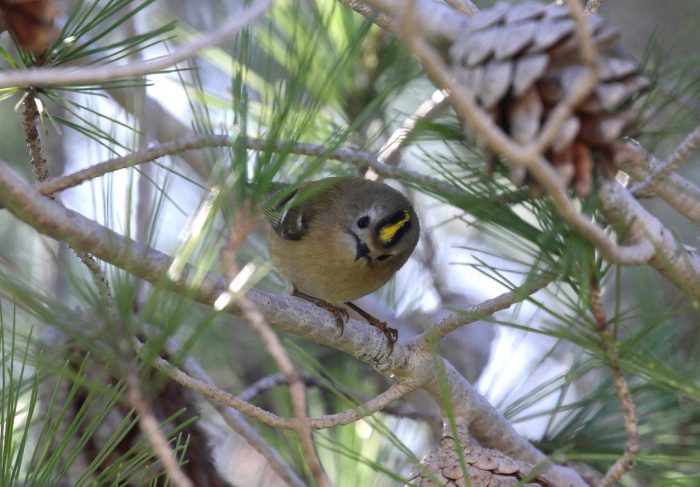
Goldcrest 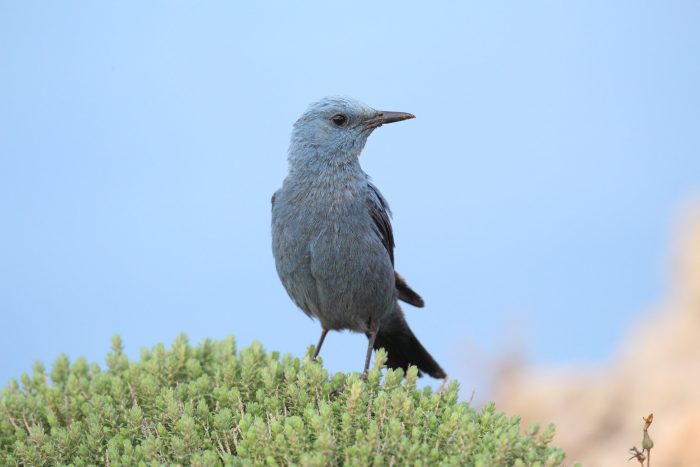
Blue Rock Thrush 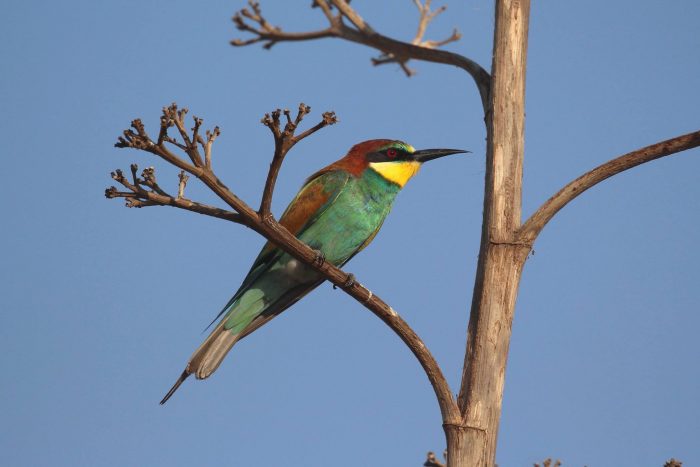
Bee-eater 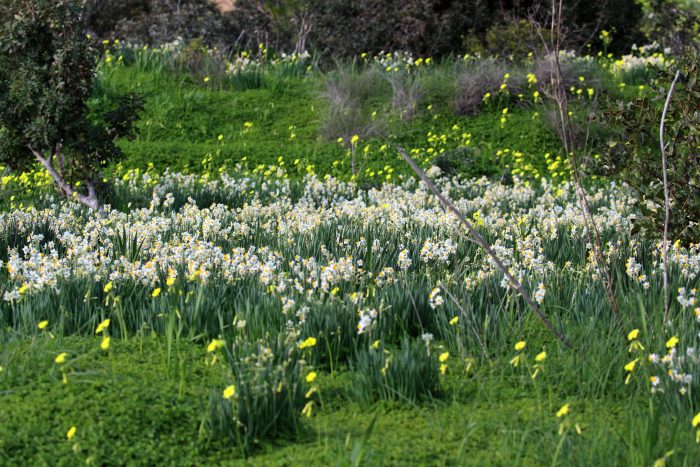
A field of wildflowers 
Strawberry Tree 
Pyramidal 0rchids 
Buckthorn 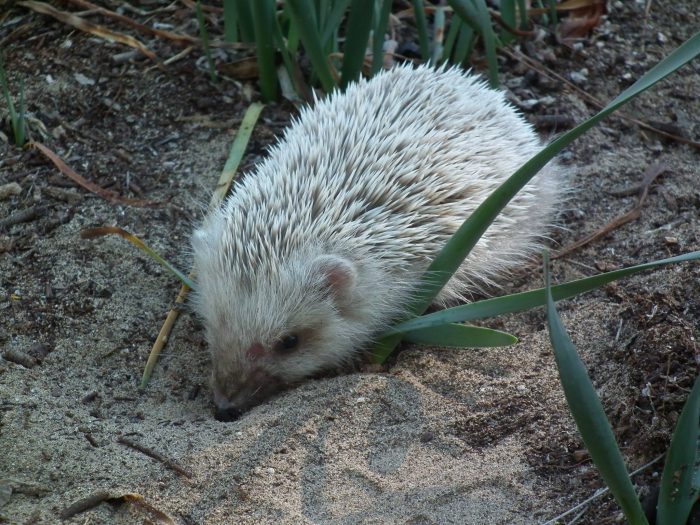
Algerian Hedgehog 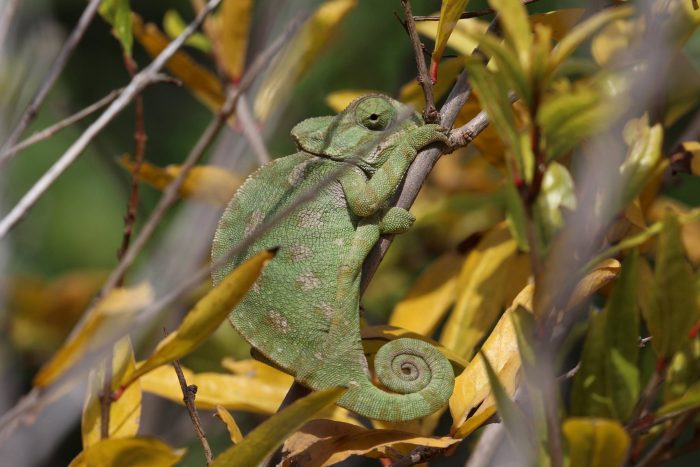
Chameleon 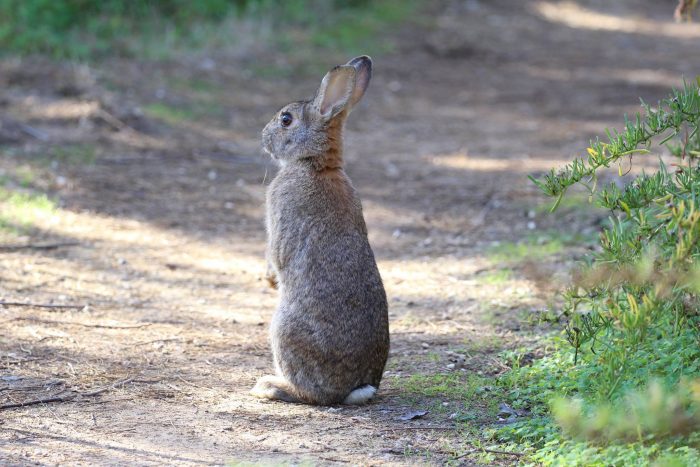
Wild Rabbit 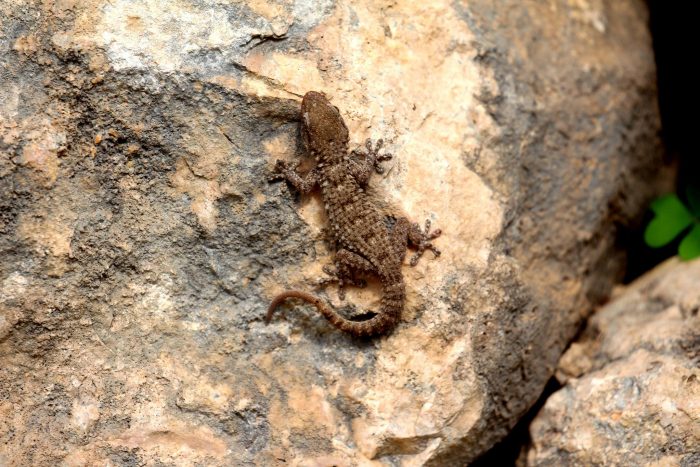
Moorish Gecko 
Swallowtail 
Red-veined Darter 
Common Blue Butterfly 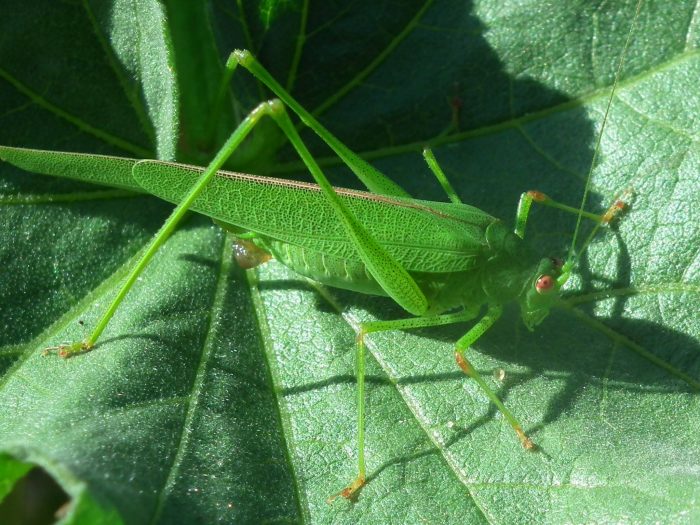
Bush Cricket
Interview carried out by Svitlana Shevchuk, BirdLife Malta Communication Assistant

